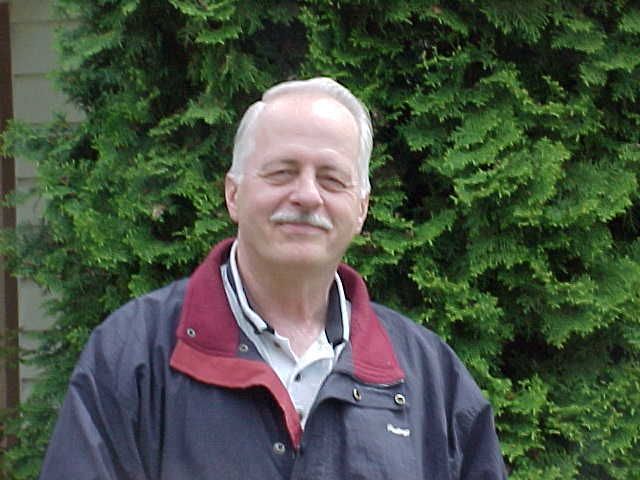I like words. I can't even imagine what it would be like to not have the use of words. Jack London wrote, Before Adam, a story that takes place in prehistoric times before the invention of language. I admire Jack London. How do you write about communication in a time in which there were no words? He did it — but even he had to use words.
Words are tools. We use words to wheedle and cajole, to influence and pressure, to persuade and dissuade. The right application of words can win a lover's heart — or break it, start a war — or stop it.
Some words are more appealing than others. Some are graceful, others are coarse. Some are mellifluous, others are guttural. Some are beautiful, others are ugly. Some express complete thoughts, others have no meaning unless attached to another. Some words have a pleasant taste, others have to be spit out.
For the writer, words are most important. It is not the accumulation of words that is attractive, but the arrangement. Unlike our forbears, we like our writing to be tight, succinct. We don't enjoy reading the long descriptive narratives of ancient novels; we want our words to be active, to do something, to pique our interest the moment we start reading.
Even in oral communication, our minds wander when the loquacious jabber on with no idea of where they are going. I know some who have the gift of gab. Hmmn, who was it that said that was a gift? Anyway, I avoid having a conversation with them. Why can't they just get to the point? Why waste all that energy on description and explanation when what I want is clear instruction?
Words should be used with discretion. Say what you mean. Years ago, in my youth, I used nebulous terminology, saying things like thingamajig, whatchamacallit, and doohickey. One of my superiors called me up short one day. He said, "Everything has a name. Use it." From then on, when I used one of those non-descriptors he would say, "Proper nomenclature, please!" In time I was converted.
Word lovers find reading dictionaries a pleasant pastime, at least this philologist does. Some people get absorbed in surfing the Internet. I get absorbed in dictionaries. I have several English dictionaries, as many more foreign ones, thesauruses, and books on English usage. I want to know not only what a word means, I want to know when and where and under what circumstances it originated. I want to know how the word is used in a sentence, whether it is formal, informal, slang, colloquial, in fashion or passe.
Some like words that are multisyllabic, thinking that their usage in one's vocabulary will set them apart as erudite. Vocabulary can be learned from a list as easily as from usage. Words are tools of communication. Four letter words can have as much power and meaning as three or four syllable words. Knowing when, where, and how to use a word shows education. Being able to communicate to the unlearned is a skill and an art requiring not only a sack full of words but a knowledge of how to put them to best use.
Talking with doctors, lawyers, engineers, and scientists may require not only a different vocabulary but a different manner of speech than that used in talking with a longshoreman or ditch digger. I say "may," because there are educated longshoremen and ditch diggers even as there are uneducated professionals.
Words — I like words. There are words that fascinate me. Words open up mental exploration of subjects that otherwise might be withheld from me. As I look into the skies at night and see the myriads of stars and celestial objects that present themselves I find my mind opening to expanded knowledge. I cannot absorb that knowledge without expanding my vocabulary. Even words that I do know, words like "horizon" and "azimuth" take on a new meaning. New words, like sidereal, are added. Now there's a neat word: sidereal. Sid-er-e-al, I toss it around on my tongue. It tastes good. Can we talk about time and space without the use of this word? Now, how can I put it to use? Oh, I suppose I can impress someone by tossing it out in casual conversation. No. That won't do it. It has to have meaning for the hearer as well as the speaker, for the reader as well as for the writer.
I have noticed that those living on the left coast often pronounce words differently than those on the right coast. One day I asked one of my coworkers if he knew the correct pronunciation of concomitant. I said, "Is it CON-com-i-tant or is it con-com-IT-ant?" The former is the correct pronunciation and is what I learned in New York, the latter is often heard out here in the West. "What does it mean? he asked. I told him. "Well, why don't you just use the those words? Why use a word that I've never even heard of?"
"How many crayons are in your kid's crayon box?" I responded. He said, "Sixty-four." I then asked him, "Why didn't you buy him a box with only the basic eight colors?" You see, words are like crayons. They give a different hue, a different nuance. They make for more accurate and more interesting conversation.
Words give us the ability to say exactly what we mean. They incarnate our ideas. They make abstract thought concrete. Words are powerful. Words have changed the course of history, have changed the path our lives take, and words have left us with a repository of the thoughts of the great and the small down through history. Words are valuable and I am both glad and thankful that someone years ago opened my eyes to their beauty.


No comments:
Post a Comment